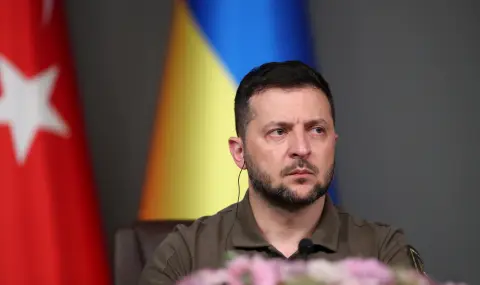The Embassy of Ukraine in Cyprus defined as “another lie” allegations in Turkish media that Ukrainian President Volodymyr Zelensky bought a casino in the city of Kerynia, located in the Turkish Republic of Northern Cyprus (TRNC), recognized only by Ankara, KNA and BTA reported.
The embassy statement said the publication was intended to discredit Ukraine and its leadership and create diplomatic tension between Kyiv and Nicosia.
In the publication, distributed by the Turkish OdaTv, it is claimed that a company owned by Zelensky bought the “Vuni Palace Hotel and Casino” (Vuni Palace Hotel and Casino), one of the largest casinos in Europe, located in Kyrenia – a city occupied in 1974 during the invasion of Turkey, which is currently controlled by the unrecognized SKTR.
The Cypriot newspaper “Phillefteros“ reports that the Turkish media claim that the purchase was made in March this year by the company “Film Heritage” (Film Heritage inc.), according to OdaTv owned by Zelensky, for an unknown amount, but according to data available on the Internet, the asking price for the casino was 150 million British pounds.
The Embassy of Ukraine states that “Russian propaganda is spreading another lie” and the publication does not contain any facts to support its claims.
For his part, Cypriot President Nikos Christodoulidis stated, quoted by the Greek newspaper “Ta Nea“, that “the competent services of the Republic of Cyprus have checked the matter (and) so far there is no evidence of such a thing. When the verification is completed in cooperation with other services and countries, we will be able to say more”.
The authenticity of the publication was also questioned by various organizations, including the Russian research institute “GnidaProject”. In the “X“ the institute defined the publication as “fake news” and noted that its rapid spread by pro-Russian profiles on social networks, and only a few days before the European Parliament elections, immediately raised doubts about its credibility.
